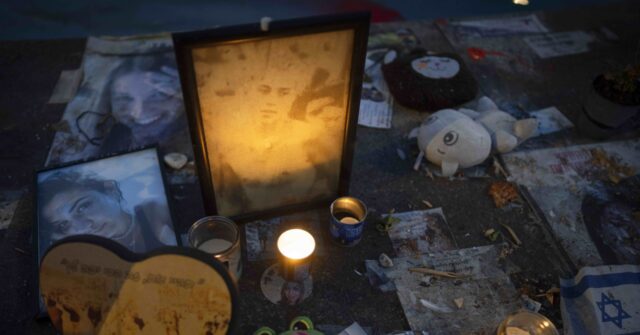The Wall Street Journal recently reported on a tense negotiation situation involving Hamas and Israel regarding hostages. According to the Journal, Hamas has rejected a proposed deal that would have allowed its leaders safe passage out of Gaza in exchange for the release of 101 Israeli hostages currently in their captivity. The proposal reportedly came from Israel’s chief negotiator, David Barnea, in a meeting with Egyptian officials aimed at breaking the ongoing impasse. This offer, however, was met with swift rejection from Hamas leaders, as communicated by Arab mediators involved in the discussions.
Khalil al-Hayya, who serves as Hamas’s lead negotiator, criticized the deal as a demonstration of Israel’s failure to understand the group’s motivations and resilience. He indicated that Hamas was prepared to extend hostilities for months or even years if necessary. This sentiment was echoed by Israeli Prime Minister Benjamin Netanyahu, who had made a similar public proposal for a hostage deal shortly after the Israeli military’s successful operation that led to the death of Hamas leader Yahya Sinwar. The situation illustrates a profound disconnect in negotiations, with neither side appearing willing to yield to the other’s demands.
In the wake of Sinwar’s death, Israel’s security cabinet permitted negotiators to continue their efforts toward reaching a hostage agreement. Nevertheless, Hamas has remained firm in their refusal to accept a deal, even as Israeli military operations have significantly degraded the group’s military capabilities. The ongoing conflict has stoked growing public demand within Israel for the release of the hostages, raising tensions and increasing pressure on the Israeli government.
The dynamic between Hamas and Israel is further complicated by the influence of Iran, which has traditionally acted as a backer of Hamas. Some analysts suggest that the release of hostages could serve as a pathway to de-escalate tensions in the conflict-ridden regions of Gaza and Lebanon. However, despite these potential avenues for resolution, Hamas has not indicated any willingness to comply with such an arrangement, prompting speculation about their strategic priorities amidst ongoing military pressure.
Joel B. Pollak, a notable figure in the media landscape, offers insights on the political ramifications of the hostage situation in the context of broader U.S.-Middle East relations. Pollak’s roles as Senior Editor-at-Large at Breitbart News and his presence on Sirius XM reflect his engagement with pressing political narratives, especially concerning American policies on foreign conflicts. His previously published works further inform his perspective on these critical issues, emphasizing the importance of understanding the historical and political undercurrents at play in negotiations between hostile factions like Hamas and Israel.
As the situation continues to evolve, the clash of narratives surrounding the hostage situation encapsulates the broader conflict between Hamas and Israeli authorities. The ongoing rejection of proposed peace initiatives and hostage exchanges suggests a stalemate that may prolong the suffering of the hostages and exacerbate tensions in the region, as both sides remain entrenched in their positions with little hope for immediate resolution. This standoff mirrors the complexities of geopolitical negotiations, where history, ideology, and power dynamics significantly shape the possibilities for peace.

